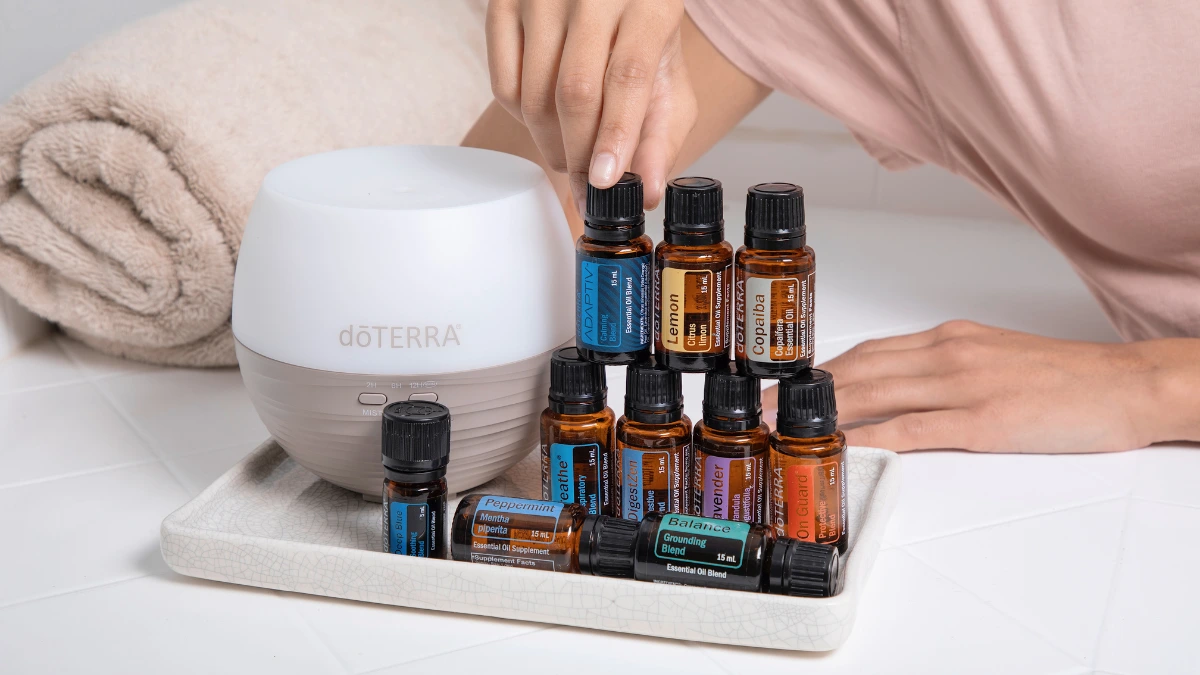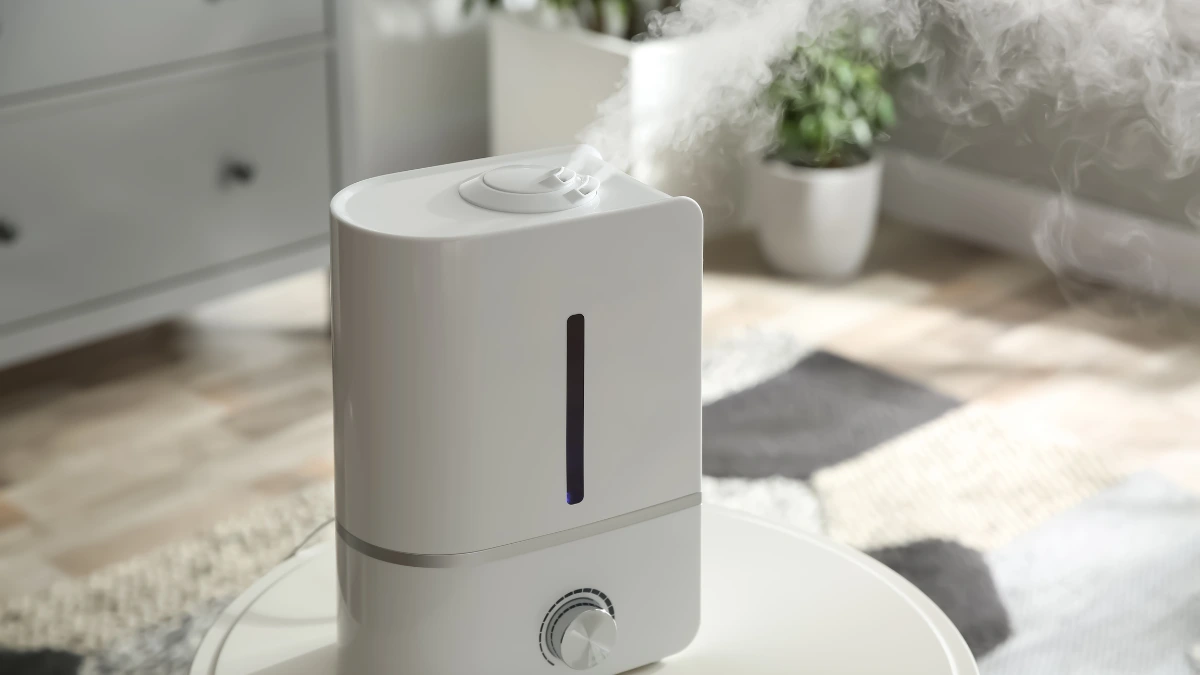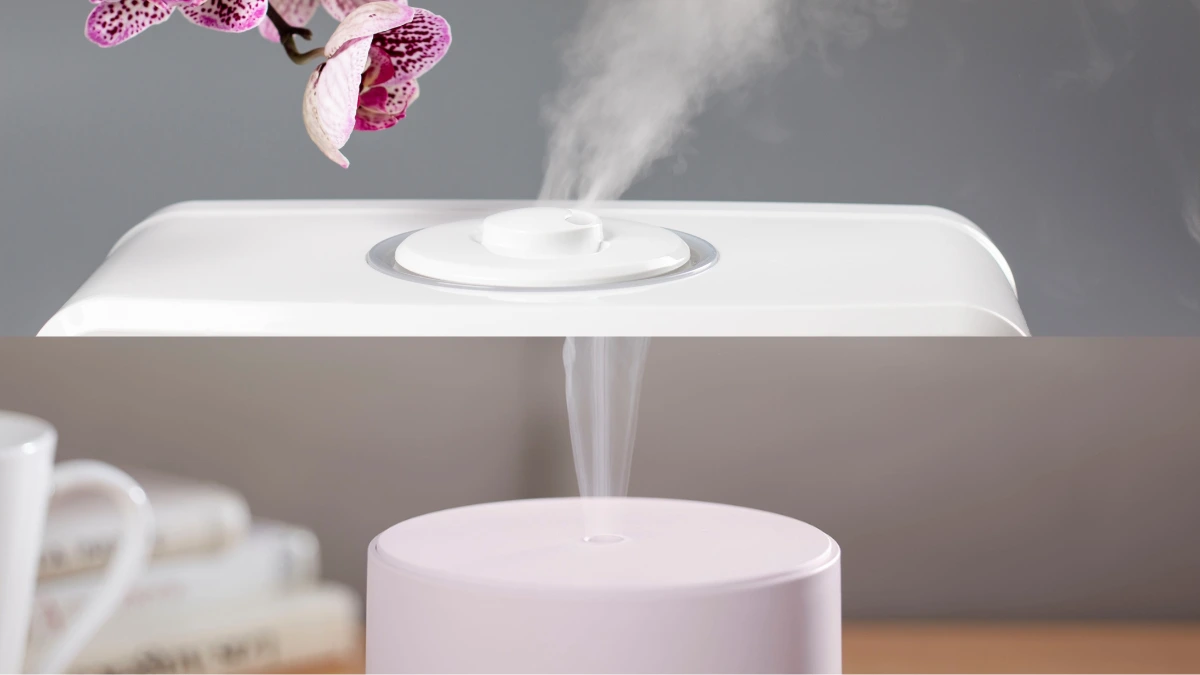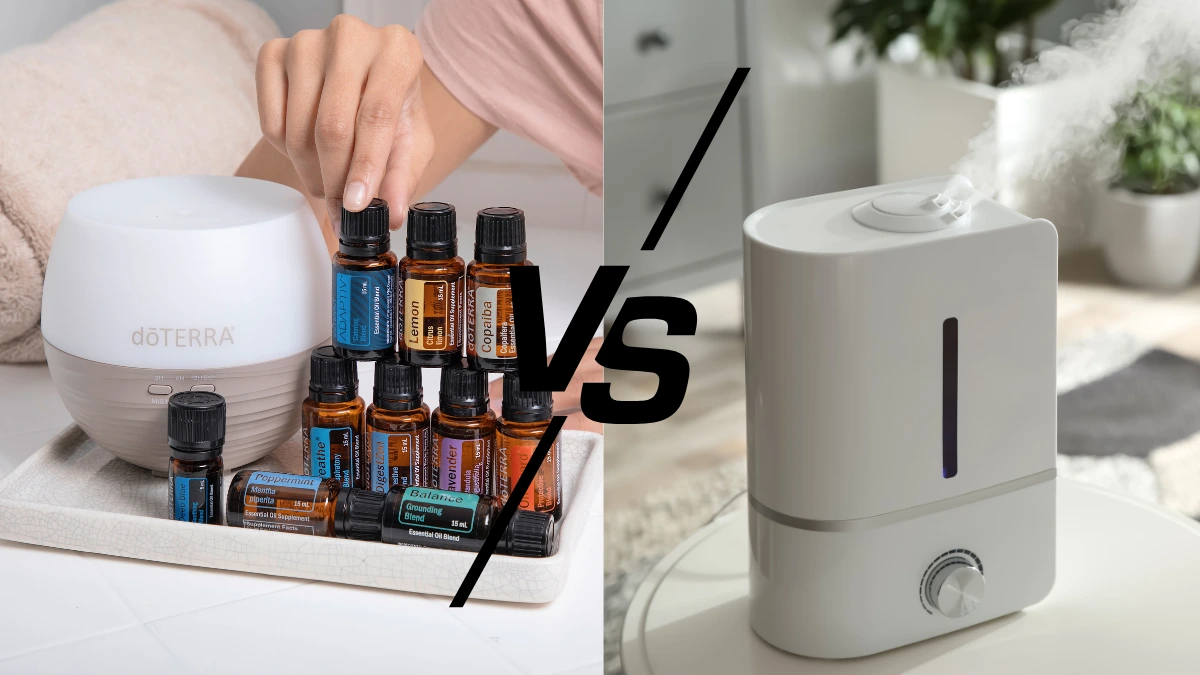In form, many people cannot distinguish between a diffuser and a humidifier. Even though there is a significant difference between diffuser vs humidifier.
Although both are used to create good air quality in the house, there are differences between diffuser vs humidifier in terms of their functions and benefits.
This article will inform you of the differences between diffuser vs humidifier for you to consider before determining the right tool to improve air quality in your home.
What is a Diffuser?

A smart diffuser is a device that converts essential oils into fragrant vapor (aroma) and disperses it into the air, making it easier to inhale.
Smart diffusers can be controlled through apps or smart devices such as smartphones or tablets.
With a smart diffuser, the spread of essential oil aroma can be controlled digitally to adjust aroma intensity, diffusion time, and other features such as LED lights.
What is a Humidifier?

A humidifier is a device that works to add moisture to the air in a room by spraying water vapor into the air. This tool is often referred to as a humidifier and is useful for overcoming dry air that can cause irritation to the skin, lips, and throat, and even worsen the symptoms of respiratory diseases.
The Differences of Diffuser vs Humidifier

Diffusers and humidifiers are both used to create good air quality in the home, but they have different functions and benefits. Here are five fundamental differences between diffuser vs humidifier:
1. How it works
Diffuser: Emits vapor from a mixture of water and a few drops of essential oil that have been put in the diffuser tube. Diffusers come in different types and work differently, including electric diffusers, ceramic diffusers, and ultrasonic diffusers.
Humidifier: Produces exhaled water vapor useful for increasing the humidity level of the air in a room. Humidifiers come in many different types and different ways of releasing vapor into the air.
2. Amount of water required
Diffuser: It usually takes 300 to 500 milliliters (ml) of water for one use. There are even some types of diffusers, such as nebulized diffusers that don’t require any water at all.
Humidifier: Humidifiers require a lot of water. They are even designed to have a water tank that can hold up to three liters of water.
3. Vaporizing speed
Diffuser: Can vaporize in a short time and spread over a small area of the room.
Humidifier: Whether or not the water evaporates quickly depends on the room temperature. If the room temperature is low and the air is dry, the humidity will increase slowly.
4. Location of placement
Diffuser: Usually placed in a bedroom that is not too big so that the aroma of essential oils lasts longer.
Humidifier: Suitable for larger rooms in the house, such as living rooms to increase air humidity. Make sure you install the humidifier in the right place so that the water vapor can spread evenly.
5. Differences in function
Diffuser: Diffusers are used to spread the fragrance throughout the room. Besides providing a relaxing effect, a diffuser can make you breathe better.
Humidifier: Works to add moisture to the air so that it is no longer dry which is good for preventing dry skin, itchy throat, and nasal congestion.
That’s the difference between a diffuser vs humidifier that can be your consideration in choosing according to your personal needs.
If you want to feel a relaxing effect, a diffuser is a good choice that can make you breathe better. However, if you need to prevent dry skin, itchy throat, and nasal congestion, you can choose a humidifier. [UN]

